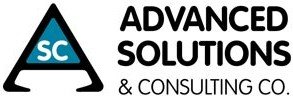With tens of billions of dollars in annual revenue, cloud ERP vendors are part of a massive and critical industry. The services are transforming businesses of all sizes. Clients need to be aware of what they are buying when they reach out to cloud vendors.
With the rise of these software programs and cloud storage, there has also been a start of underhanded practices on the part of cloud vendors.
What the Practices Are
Certain cloud vendors intentionally create situations where they dominate the relationship by manipulating the licenses and user agreements.
One of the more insidious tactics is to bully the client into buying more licenses. This involves repeated messages and pressure to purchase more licenses. The seller creates scenarios where the client feels obligated to buy their products through unclear requirements or repeated messaging. SaaS end-user license agreements can be written as a multi-page document that is intentionally complex. Hidden among these can even be a compromising situation for the customer as they can authorize tracking systems or unwanted programs.
Another major issue is when a vendor straight-up misrepresents either their capabilities or their obligations to the customer. These behaviors are caused by a bait-and-switch, with a vendor promising to act one way or deliver a certain product, only to delay or fail to deliver at all. And it all can be completely legal, due to how the EULAs (End-User License Agrrement) are written. Additionally, they can also misrepresent what is not in the license, justifying further charges.
Many EULAs out there also attempt to forbid “benchmarking”, or the process of measuring the performance of their software in a controlled and defined environment, in order to restrict any negative press or to control the narrative around the usage of their software. Although less of a legal issue than outright fraud, it is still prevalent in licenses and can create an unethical situation for a buyer.
Many EULAs out there also attempt to forbid “benchmarking”, or the process of measuring the performance of software in a controlled and defined environment, in order to restrict any negative press or to control the narrative around the usage of their software. Although less of a legal issue than outright fraud, it is still prevalent in licenses and can create an unethical situation for a buyer.
How to Avoid Them
Forewarned is fore-armed, as the saying goes. Knowledge of how tech-licensing works can help prevent your company from getting into an unsatisfactory or illegal relationship with their cloud services sellers.
Make sure that your sales and legal teams are able to communicate. Often in organizations, there are no links between different departments. However, it is advantageous that different departments can talk amongst themselves in order to raise issues or see problems that someone else might not. Having the legal department review contracts or EULAs can prevent your company from joining a bad partnership.
In today’s business environment, cloud-based ERP software is a vital component of business strategies. The software can help in locating transactional opportunities and inter-departmental communication.
A vital practice is to always be aware of what you are signing up for. Make sure to carefully scan any agreement to avoid exposure to tracking software/cookies or invasive apps which was hidden in the EULA. Many agreements are not modifiable, which can restrict future innovation. It is also vital to ensure that you are working closely with your vendor in order to modify the order as needed.
Good cloud ERP vendors are out there which do offer a superior experience. Make sure you do your research.
ASC, the premier Acumatica re-seller, puts its customers first in all its transactions and works closely to provide the best experience. You can be assured that all the contracts are transparent and straightforward. Reach out today for an introduction and to see how we can transform your operational needs.

